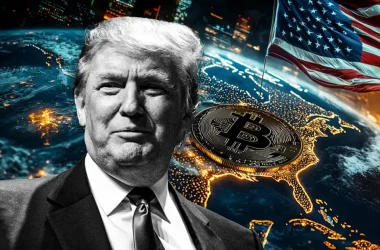As finance and technology evolve rapidly, cryptocurrency has emerged as a central player. Often misjudged as chaotic due to its volatility, crypto’s real potential lies in reshaping financial control, redistributing power from the few to the many. Grounded in decentralization, financial inclusion, and accessible resources, cryptocurrency aligns closely with progressive values. As we enter a pivotal election cycle, Democratic leaders stand before a significant opportunity: they can empower their base, appeal to younger generations, and advocate for economic justice in the digital era.
Addressing Crypto’s Challenges and Potential for Change
While crypto has faced skepticism regarding volatility, fraud, and environmental impact, these concerns are avenues for growth and innovation. Bitcoin, born in response to the 2008 financial crisis, represents a reaction to systems that marginalized vulnerable communities. Its goal of decentralizing financial control offers individuals a way to challenge traditional institutions. This shift is about more than technology—it addresses systemic inequalities, empowering those who have been sidelined.
Decentralization and Financial Empowerment
Decentralization is at crypto’s core, embodying a progressive principle. By bypassing intermediaries like banks, crypto enables individuals to control their assets directly, avoiding institutions that have historically favored those in power. Traditional financial structures often concentrate wealth at the top, leaving marginalized groups out. Cryptocurrency disrupts this cycle, providing anyone with internet access the ability to participate in the global economy and build wealth.
Additionally, decentralized finance (DeFi) platforms open wealth-building opportunities to people regardless of traditional barriers. DeFi enables users to lend, borrow, and invest independently of central banks, leveling the playing field. Young people, women, and communities of color—groups often excluded by conventional finance—can build wealth based on innovation and effort, not status or privilege. By democratizing financial tools, DeFi paves the way for broader economic participation.
Financial Inclusion: Reaching the Unbanked
Cryptocurrency’s promise to bank the unbanked is transformative. Worldwide, 1.4 billion adults lack access to formal financial services, often due to geographic or systemic barriers. Crypto offers an alternative: with a smartphone, individuals can enter markets, make transactions, save, and invest without a bank account. This access reduces exclusion and promotes economic equity.
In countries like Nigeria and El Salvador, where traditional banking often falls short, crypto adoption is surging. People are gaining financial autonomy, bypassing unreliable systems. For Democratic leaders, supporting crypto means endorsing global financial inclusion and strengthening a commitment to equality.
Promoting Transparency and Accountability
Beyond financial access, crypto enhances transparency and accountability, especially in public sectors. Blockchain’s immutable ledger allows real-time tracking of public funds, curbing corruption and ensuring responsible spending of taxpayer money. This transparency strengthens democracy by building public trust in institutions. By adopting blockchain for governance, Democrats can establish more transparent and accountable systems.
In addition, crypto is reshaping how creators, particularly those from marginalized backgrounds, earn and retain ownership of their work. NFTs, or non-fungible tokens, are transforming art and music, enabling creators to monetize their work directly, bypassing traditional gatekeepers. This shift empowers creators economically, with projects like “World of Women” showcasing NFTs’ potential to foster wealth within historically underrepresented communities.
Environmental and Regulatory Challenges
Critics often highlight crypto’s environmental impact, especially the energy-intensive nature of mining. However, recent changes, such as Ethereum’s shift to proof-of-stake, are reducing energy demands. Additionally, Bitcoin mining increasingly utilizes renewable energy, even contributing to energy grid stability. Rather than dismissing crypto, leaders should see these challenges as chances to innovate. By fostering eco-friendly practices, Democrats can align crypto with environmental goals, proving that sustainability and digital finance can coexist.
Concerns over fraud and volatility are valid, yet manageable through smart regulation. Thoughtful policies can protect consumers without stifling crypto innovation. By crafting balanced regulations, Democratic leaders can ensure responsible crypto growth, benefiting those traditionally left out of financial systems.
Seizing the Political Opportunity
Despite crypto’s alignment with progressive values, some Democratic leaders have been hesitant. However, caution may risk alienating young voters, especially Millennials and Gen Z, who see crypto as more than a financial tool; they view it as a path to decentralization and empowerment. These voters desire bold leadership that challenges outdated systems and embraces innovation.
For Democrats, understanding crypto’s intricacies isn’t just sound policy—it’s a strategic move. By advocating for progressive crypto policies, they can signal their dedication to economic justice, inclusivity, and advancement—values central to the party’s platform. The coming election cycle presents a unique opportunity to lead with a vision that recognizes crypto’s transformative potential.
As election season heats up, economic access, equity, and empowerment will be key topics. Including crypto in this conversation allows Democratic leaders to stand with millions of Americans excluded by traditional finance, promoting an inclusive, transparent, and decentralized financial future.
The call for bold leadership is urgent. By embracing crypto as a tool for progressive change, Democrats can demonstrate their commitment to economic justice and innovation. This is an opportunity they can’t afford to miss. By stepping up, they can guide the nation toward a financial future defined by progress, equity, and inclusivity.
The post Opinion: Why Crypto Must Be a Top Priority for Democratic Leadership appeared first on Cryptonews.















